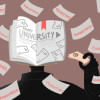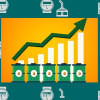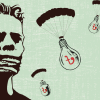Power Tariff Hearing: Hike proposal draws heavy flak
Utility companies' proposals to increase power tariff at bulk and retail faced heavy criticism during a hearing at the Bangladesh Energy Regulatory Commission (BERC) yesterday.
The Consumers Association of Bangladesh (CAB), industries, businesses and left-leaning politicians came down heavily on the proposals.
The energy regulator yesterday organised a special hearing on the CAB's proposal to cut power tariff.
During the first day of the hearing on September 25, CAB said the proposal to increase bulk electricity tariff by Tk 0.72 per unit (kilowatt hour) could not be justified.
If income and expenses were adjusted, there would be 6 paisa surplus as per the calculation of CAB and 1 paisa as per the calculation of the technical evaluation committee of the BERC, said the rights group yesterday.
“So, the tariff increase proposal is not logical and just,” CAB said.
It said if the government had supplied adequate gas to the state-run power plants, instead of private plants, Bangladesh would have saved Tk 1,301 crore.
Gas-based rental and quick rental power plants sell power to the government at Tk 3.37 per unit whereas state-run gas-based power plants could do the same for about Tk 2.02.
Measures like producing less power burning diesel and rationalising capacity payment for rental and quick rental power plants (payments for being available to produce power) could have saved at least Tk 7,843 crore in 2015-16 or Tk 1.56 per unit, CAB claimed.
The savings would have brought down the bulk rate to Tk 3.34 a unit from Tk 4.90, according to CAB.
“Already there is damage. But I would like to request the commission not to pass it,” said Prof Shamsul Alam, energy adviser to CAB.
The Bangladesh Power Development Board said when the bulk rate was fixed at Tk 4.90 per unit in September 2015, it took into consideration Tk 4,300 crore as subsidies from the government.
But the subsidies never came and now the BPDB is running its operations by borrowing from the government at 3 percent interest. “That's why the BPDB has proposed the bulk tariff hike,” the BPDB said in its argument.
The BPDB said if the BERC hikes bulk tariff by Tk 0.55 per unit and Tk 4,300 was made available as subsidies, it would be possible for it to supply power at a reduced rate.
In February this year, the BPDB submitted a proposal to increase bulk power tariff to Tk 5.59 a unit from Tk 4.87, which is a 14.78 percent hike.
Monowar Islam, chairman of the BERC, said appropriate decision on power tariff hike would be made after scrutinising all proposals and taking into account all arguments and logic.
He said there was no question that efficiency had to be increased and proper management on the demand side was needed.
Monowar said the power sector had expanded massively all on a sudden and everything was being done on trial-and-error basis.
Syed Abul Maksud, noted columnist, said the commission had set an example by organising the special hearing and it was an expression of a state's democratic characteristics.
Architect Mubasshar Hussain said the BPDB had proved that it could supply electricity at a very low price.
He also questioned the logic behind charging the BPDB interest on subsidies given to it.
Amzad Hussain, a director of the Federation of Bangladesh Chambers of Commerce and Industry, said if the tariff was increased, it would raise the cost of production, hurt the country's competitiveness, and cause inflation.
Md Hasin Parvez, joint secretary-general of the Bangladesh CNG Filling Station & Conversion Workshop Owners Association, extended full support to the CAB proposal.
Ruhin Hossain Prince, a central leader of the Communist Party of Bangladesh, said the demand for bulk tariff rise from the BPDB was uncalled-for.
Zonayed Saki, chief coordinator of Gono Shanghati Andolon, said any tariff hike would hurt the poor, the industries and the country's competitiveness.
He also said the BERC was supposed to set fuel prices. But the energy ministry was fixing the prices itself breaching the laws.
Yesterday was the last day of the hearing.
Distributors such as Dhaka Electricity Distribution Company, Dhaka Power Distribution Company, and Rural Electrification Board also proposed retail tariff hike.
The BERC would make public its decision regarding the matter within 90 working days.

 For all latest news, follow The Daily Star's Google News channel.
For all latest news, follow The Daily Star's Google News channel. 







Comments